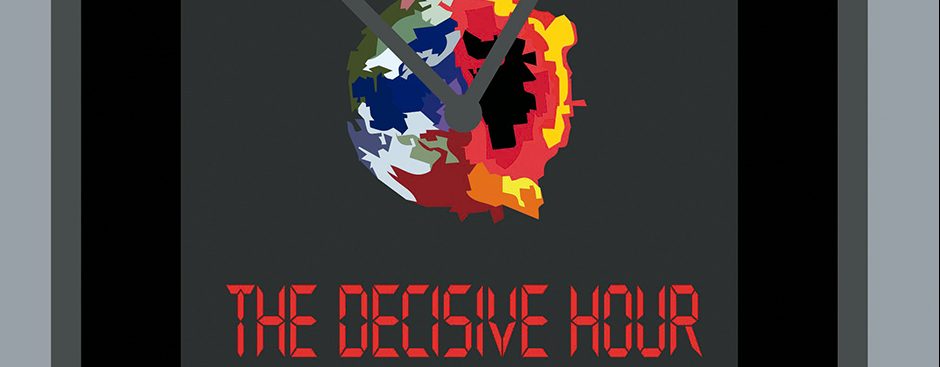The Decisive Hour
The 1980s ended with a political catastrophe unparalleled in history. The whole scheme of international relations, which had been built around the bipolar system, with ideological confrontation between economic capitalism and political liberalism and the Marxist-Leninist option represented by the communist countries, broke down spectacularly. It could not have been like this if it were not for the fact that such a confrontation, relatively false at first, became anachronistic in an accelerated manner. In reality, if we had removed the military force of the two major powers, we would have found a very clear political binomial, coinciding in the maintenance of structures of domination and in the false invocation of democracy (formally or supposedly real) to conceal privileges. Another of the inaccuracies was to project this confrontation geographically, presenting it as an East-West conflict. It must be pointed out, however, that this ideological-geographical representation had for more than four decades a very important stabilizing effect, insofar as it framed almost all social conflicts in the bipolar scheme, silenced them in many cases, and in others imposed solutions from above, to respond to the interests of the two protagonists, not allowing the development of disturbances that could lead to a general confrontation. That’s why the celebrations that were unleashed in the Western world in 1989, since the fall of the Berlin Wall, as full of symbolism as of ambiguities, sounded naïve. For many, this indicated the beginning of the free path to the Golden Age, without fear of nuclear conflagration, and with the possibility of immediately capitalizing on the “peace dividend”, with the release of resources hitherto committed to military preparation. Few heeded the warning calls of those of us who predicted the generalization of economic chaos and social and political turbulence throughout the world, as the ideological framework of confrontation, which had disciplined all conflicts, disappeared. Without the brakes of the last decades, free the peoples from the ties of the false ideological debate and free from the hegemonic control of the two poles of military power, a general readjustment began, in which, according to the naïve ones, the values of democracy would be the new rules of the game. Soon they were going to be disappointed, and they would soon discover that human nature has not changed, neither in its objectives of domination, whatever the motives invoked, not even in the faces of the actors, who with as much audacity as cynicism, jumped ideological barriers and changed political discourses, without any shame. To the prevailing confusion have been added the proclamations of victory, of those who present a correspondence between the defeat of the oriental bureaucratic formula, which was real (one speaks of the defeat of socialism, as if those monstrous formulas had something to do with socialism) and the triumph of the alternative of liberal capitalism. This is a dangerous approach, which would soon become evident, with the failure of its most typical and glorified formulas, such as British Thatcherism, Reaganism in the United States and other similar formulas, which lead to the break-up of the social pact, by accentuating the division between the poor, who are becoming more and more numerous, and the rich, who are becoming less and more powerful. This is a sure formula for the emergence of inefficient economies in the long term, predators of the physical environment (which, contrary to what some think, cannot be protected by the regulating mechanism of the market) and, ultimately, generators of the social explosions that we are witnessing in many of the countries of the world, developed or underdeveloped alike. The previous editions of “The Decisive Hour” have received a favorable reception, which shows the interest aroused by the topics dealt with here. As was logical, given the controversial nature of most of the approaches, not all readers have agreed on the approach given to many of the questions, but there is no doubt that the book has given cause for reflection, both to those who assume most of the conclusions and to those who oppose them. In the nine years since the first edition, the facts show that the concerns we expressed about the problems of humanity were well justified. The tendencies towards the destruction of ecological and social systems have been sustained; however, it is fair to note a great advance in terms of awareness of the problems that afflict us. Concern for global issues is beginning to reach the grass-roots level, and the conditions have been created for the beginning of general mobilizations by an international civil society, which is beginning to confront vested interests, anchored in anachronistic conceptions of social life. It is no longer so common to be branded as pessimists or exhorted to “think positively”, euphemistic formulas, of those who refuse to see reality as it is, and prefer self-deception as a formula for evasion. For our part, we have developed some of the approaches outlined in previous editions: often benefiting from the logical feedback process that is given whenever one raises ideas publicly. From the debates that followed the book presentations and conferences in various media and countries, we have gathered many observations and, not infrequently, we come to conclusions that are a reaction to criticisms that we judge to be incorrect. But to critics and apologists alike, we thank you for your interest in this book, which, for work reasons, has had to rest for many years, since the second edition was sold out, without us being able to incorporate the additions and corrections with which we wished to improve it.
